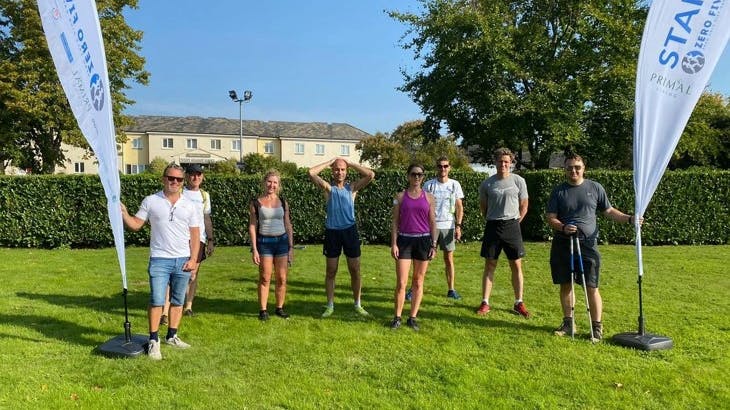- Relationship to Diabetes
- Type 1
- Pronouns
- He/Him
I refer you to post number 8 .
As I said… it was what you suggested. 🙂
I refer you to post number 8 .
" I’m not sure I’d suggest someone just launches into a 40 mile hike and hoped their own ‘reserves’ will be used without adapting first - which I think is what you suggested."As I said… it was what you suggested. 🙂
My non-D partner went for an 80km bike ride last weekend. He is slim and fit but would not describe himself as "well trained". After 60km including a fair number of big hills, he wasn't feeling great and took a break. After about 10 minutes, he was feeling better but still "not quite right" so borrowed my meter. His level (after some recovery) was 2.9 mmol/l.Non-keto non-D athletes (well trained) can trigger hypoglycaemia in endurance events if their systems are geared to burning carbs and insufficient are available,
Your non-diabetic partner is slim-- i.e. not much fat to burn. And he is not accustomed to exercise that is not only prolonged but also high-intensity. He then cycles "60km including a fair number of big hills".My non-D partner went for an 80km bike ride last weekend. He is slim and fit but would not describe himself as "well trained". After 60km including a fair number of big hills, he wasn't feeling great and took a break. After about 10 minutes, he was feeling better but still "not quite right" so borrowed my meter. His level (after some recovery) was 2.9 mmol/l.
He now has a packet of jelly babies to treat himself the next time he is in need of instant fuelling.
(Sorry, I know this is a little off track. But your comment triggered a reminder of his white face.)
I agree - hence my final sentenceNuttyneary's situation is the opposite, on all points.
I included it for interest. I know often threads drift off course.(Sorry, I know this is a little off track. But your comment triggered a reminder of his white face.)
I think there's a risk of some confusion on this thread, between two very different things: on the one hand, whether Nuttyneary should go on a 'keto diet', and on the other hand whether he or she needs to consume additional carbs during his/her long walk(s).Sorry! I think it’s just my sentence structure.It probably needs scrapping and starting again
You suggested the OP would need to become fat adapted first, didn’t you?
I said I thought you’d said in order for your strategy to work they would need to be fat adapted (which is what I understood you had suggested).
But that it probably wasn't wise to opt for that strategy without being fat adapted first.
Not sure if that’s making things clearer or more confused!
Not quite true.. even extreme athletes have a fair % of body fat.Your non-diabetic partner is slim-- i.e. not much fat to burn.
Do you carry some spare pounds?
if so try an ultra low carb keto diet to gain access to your stored body fat and use that to fuel you for the walk.
These guys ran 100 mils over a week fasted..

UK Team Completes a 100-mile, five-day Run with no Food - Diet Doctor
Eight runners ran 100 miles in five days without food. They aimed to dispel myths surrounding daily carbs and energy needs.www.dietdoctor.com
Depends how much you know about your own condition and how much faith you place in medics.Not exactly a recommendation for any of the rest of us in there?
